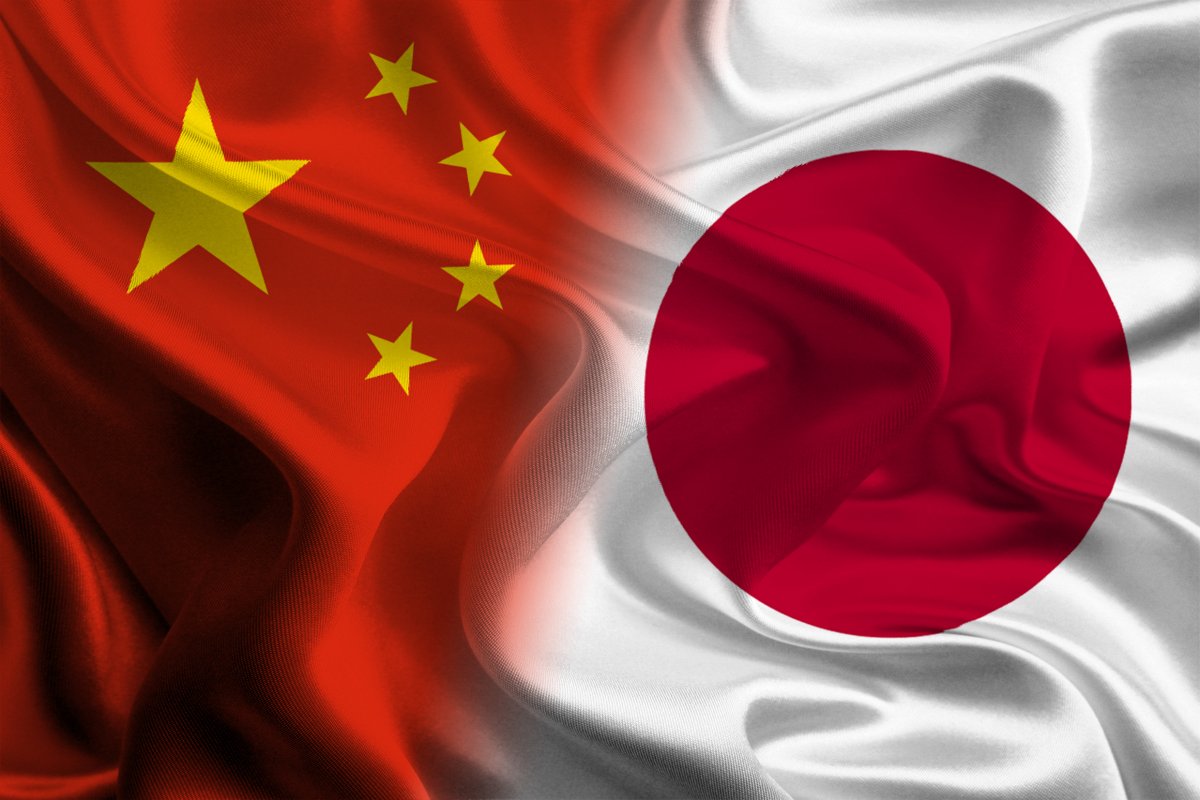In the great power conflict between China and the USA, Japan has long since positioned itself strategically: When in doubt, the East Asian island nation sees itself as part of the American empire and not as a subject of Chinese hegemony. This was shown by the decision in late March to support US chip restrictions on China in Japanese fashion.
The US wants to slow down the development of the Chinese chip industry by banning the export of technologies for the latest chip generations. So Washington urged the two main suppliers of chip technology, Japan (Tokyo Electron/TEL, Advantest and Nikon) and the Netherlands (ASML) to support the initiative.
With success: The Japanese government wants to add 23 technologies that are necessary for semiconductor production to the foreign exchange and foreign trade control law this summer. Only countries that are among Japan’s preferred trading partners (including the EU, Taiwan and Singapore) can continue to shop in Japan without an export permit.
Japan has always tried everything possible with electronics – and often the impossible. Every Thursday our author Martin Kölling reports on the latest trends from Japan and neighboring countries.
Japan’s measures in the chip industry
The government wanted to avoid the impression that the measure was aimed at China. Economics and Trade Minister Yasutoshi Nishimura: “These export controls apply to all regions and are not directed against a specific country.” The government wants to check whether there is a risk of military misappropriation.
In China, however, the move was understood as it is. China’s Foreign Minister Qin Gang criticized: “The USA brutally suppressed the Japanese semiconductor industry with bullying tactics, now they are repeating their old tricks against China.” He accused Japan of being a “lackey” of Washington. The blockade will only strengthen China’s determination to become independent of imports in the chip industry.
The reaction of defiance is understandable because the consequences are potentially severe. Japan, the former world market leader in chip production, is technologically still a major power in semiconductor production. Without Tokyo Electron’s chip systems and technologies, not even the state-of-the-art DUV lithography systems of the Dutch group ASML, which are required for production processes in the single-digit nanometer range, let alone Chinese factories, run.
Japan is a sought-after partner in the chip industry
Chip manufacturers are also dependent on Japan for other technologies, materials and chemicals. Japan is a sought-after partner: Taiwan’s TSMC, the world‘s largest contract manufacturer of semiconductors, is building a chip factory in Japan with Sony as a co-investor. Because the Japanese are not only a big customer, but also offer chip know-how that TSMC wants to use. In addition, TSMC maintains a research center in Japan with Japanese suppliers of the chip industry to develop the new generation of 3D chips.
The US is no different. Japan is not only part of Joe Biden’s “Chip 4 Alliance” alongside Taiwan and South Korea, with which the US President wants to build a US-centric supply chain. The US and Japanese governments have also agreed to jointly develop the production of 2-nanometer chips. In order to fill this agreement with life, IBM and the newly founded Japanese mega start-up Rapidus joined forces last year.
Why Japan is siding with the United States
China is an important sales market for Japanese companies. Tokyo Electron makes around a quarter of its sales with its big neighbor. The fact that Tokyo is now willing to sacrifice part of the deal shows how important the alliance with the US is to the government. In view of China’s growing military power, the Japanese government is doing everything it can to prove itself a close partner of the United States in order to maintain the protecting power in Asia, without forgetting its own interests.
The Japanese government not only fears that China will conquer the rocky islands controlled by Japan. It’s also about China’s invasion threats against Taiwan, whose chip shipments also play a role.
Taiwan is part of the so-called first chain of islands, which lies like a bolt off the east coast of the Eurasian landmass and blocks China’s free access to the Pacific. If the island falls to China, the Middle Kingdom could more easily cut off not only Japan’s vital sea connections. Beijing could also more easily enforce territorial claims on Japanese islands.
Japan’s divergent course
The extent to which Japan is counting on the USA was shown after Donald Trump’s election victory in 2016: Prime Minister Shinzo Abe at the time rushed to New York as the first international dignitary to personally congratulate Trump on his presidency. Joe Biden, who continues to expand Trump’s “America First” in terms of industrial policy, can also count on Japan, as cooperation in the chip industry shows. It remains to be seen to what extent the new measures will affect the Chinese chip industry. The government has also retained a degree of discretion with regulation.
The war in Ukraine shows how skillfully Japan can combine diverging tendencies: Japan supports the sanctions against Russia, promises Ukraine more than five billion dollars for reconstruction – and is sticking to its investments in two oil and gas fields on the Russian island of Sakhalin firmly. When it comes to chips, the tightrope walk continues.
A day after the announcement, Foreign Minister Yoshimasa Hayashi traveled to China for talks. There he spoke not only with Chinese Foreign Minister Qin, but also with Prime Minister Li Qiang and, above all, with Wang Yi, who, as a member of the Politburo of the Party’s Central Committee and Director of the Office of the Central Commission on Foreign Affairs, is the real architect of Chinese foreign policy . This shows that Japan is not America’s “lackey” but is quietly pursuing its own interests, despite a tougher stance on China.

(jl)
